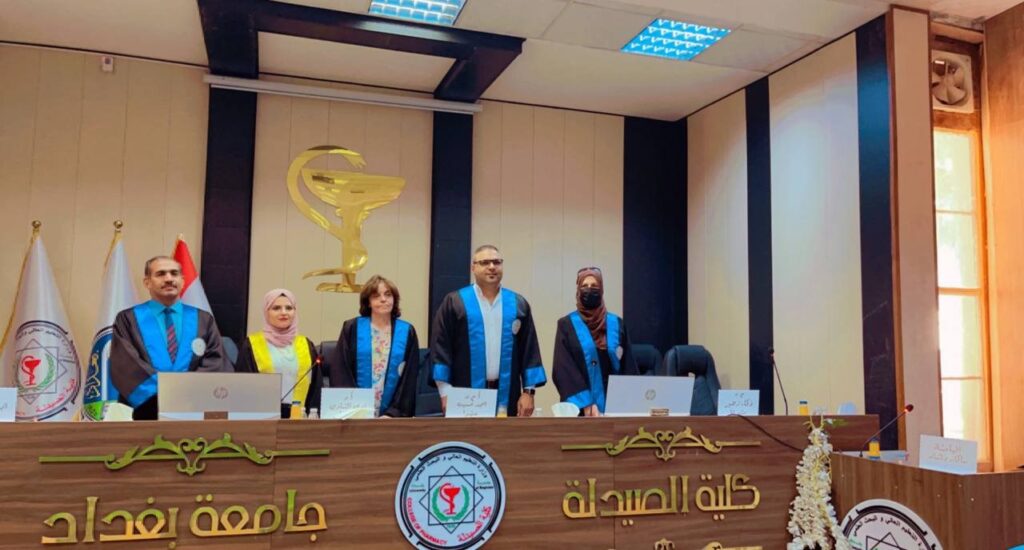The Faculty of Pharmacy discussed the master’s thesis tagged ” Phytochemical investigation and evaluation of wound healing activity of Origanum majorana L. cultivated in Iraq ” by Sakar Dilshad Asaad and her supervisor, Lecturer Dr. Thukaa Zuhair abdul-Jalil, in the Pharmacognosy and Medicinal Plants Department. The thesis aimed to find and isolate chemical constituents in cultivated Origanum majorana that have not been studied before and to evaluate their wound healing activity. Thesis topics include the extraction of many phytochemical constituents from aerial parts of the plant by using two methods. Qualitative and quantitative analysis of chemical constituents was done by using TLC and HPLC. Isolation and purification of chemical compounds were done by using PLC and PHPLC. Then identification and characterization of isolated compounds by using several techniques (TLC, UV, FTIR, and LC/MS). The results proved the presence of nine phytochemical compounds (β-sitosterol, Stigmasterol, P-coumaric acid, Rosmarinic acid, Genistein, Carnosic acid, Arbutin, Caffiec acid, and Luteolin) that were isolated, purified, and identified. The results of the wound healing activity of sterols in n-hexane extract and phenols in ethyl acetate extract fractions of the aerial parts of Iraqi Origanum majorana L. in a rat model of excisional wound repair by contrasting the wound-healing abilities with those of commercially available (MEBO®) ointment. In this study, when compared to positive and negative controls, the formula’s inclusion of sterols and phenols led to a significant decrease in wound diameters. According to estimates, the ethyl acetate extract fraction with the highest concentration of phenolic compounds gave the best results, as proved by phytochemical analytical screening for the Origanum majorana L. extracts, giving a faster rate of wound closure.



